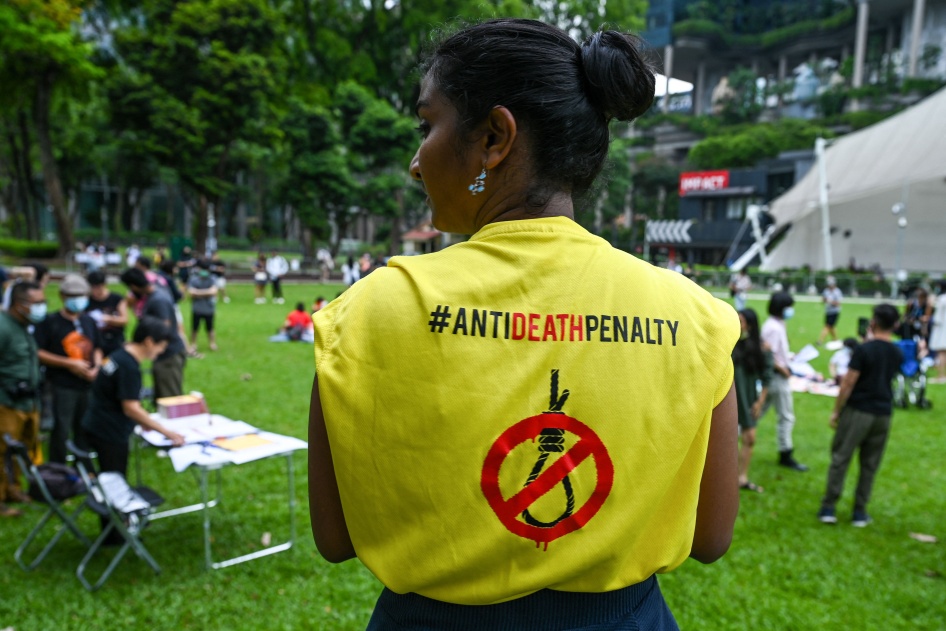(Sydney) - The Australian government should strengthen its global advocacy to abolish the death penalty, Human Rights Watch said in a recent submission to Parliament’s Joint Standing Committee on Foreign Affairs, Defence and Trade (JSCFADT). The Committee is currently reviewing Australia’s international engagement to promote the abolition of the death penalty.
Human Rights Watch opposes the death penalty in all circumstances because of its inherent cruelty. Around 170 countries, including Australia, have abolished or introduced a moratorium on the death penalty either in law or in practice.
“Australia has consistently spoken out against the death penalty at the United Nations, but time and again the government has missed opportunities to make strong public comments regarding certain countries,” said Daniela Gavshon, Australia director at Human Rights Watch. “The government needs to be more outspoken to put sustained political pressure on governments still using this terrible and globally condemned form of punishment.”
Most notably, the Australian government has missed many opportunities to publicly convey its concerns about executions in Singapore. In 2023, the Singaporean authorities carried out the highest number of executions for drug-related offenses in over a decade, including the first woman put to death in nearly 20 years. Singaporean authorities executed two men for drug trafficking on August 2 and August 7, 2024, despite both having pending appeals when the executions were scheduled.
Australia and Singapore have annual leaders’ meetings, yet the death penalty has not been raised publicly during those meetings, even when executions in Singapore have occurred immediately before the leaders’ summit.
The Australian government should also update its 2018 Strategy for the Abolition of the Death Penalty to include government-to-government assistance and police cooperation in a death penalty context. Currently, Australian police cooperate with foreign police forces on, for example, drug trafficking cases. This could have grave consequences if it is cooperating with a country that executes people for drug-related crimes. Although the Australian Federal Police has an internal oversight board for “sensitive” investigations, there is no mandatory external and human rights oversight. Without this oversight, there is a serious risk that Australian police could cooperate with a foreign police force in a way that leads to someone being sentenced to death and executed.
“It’s not good enough to rely on internal oversight for matters as serious as the death penalty,” Gavshon said. “At the very least, any Australian police and government oversight board should include a government human rights specialist; the stakes are much too high to risk getting it wrong.”









